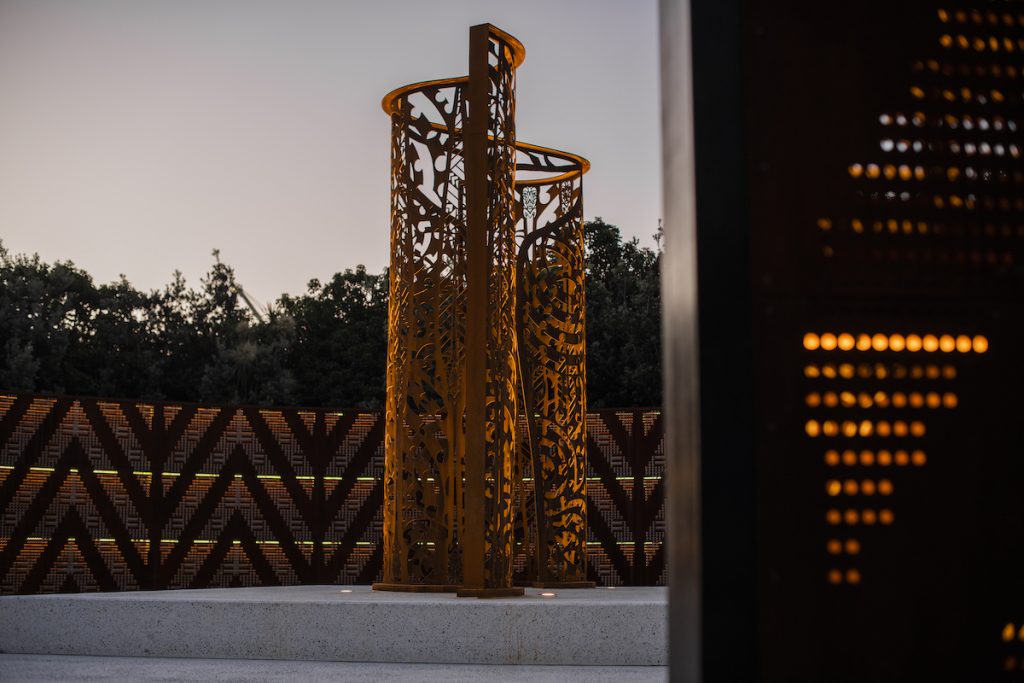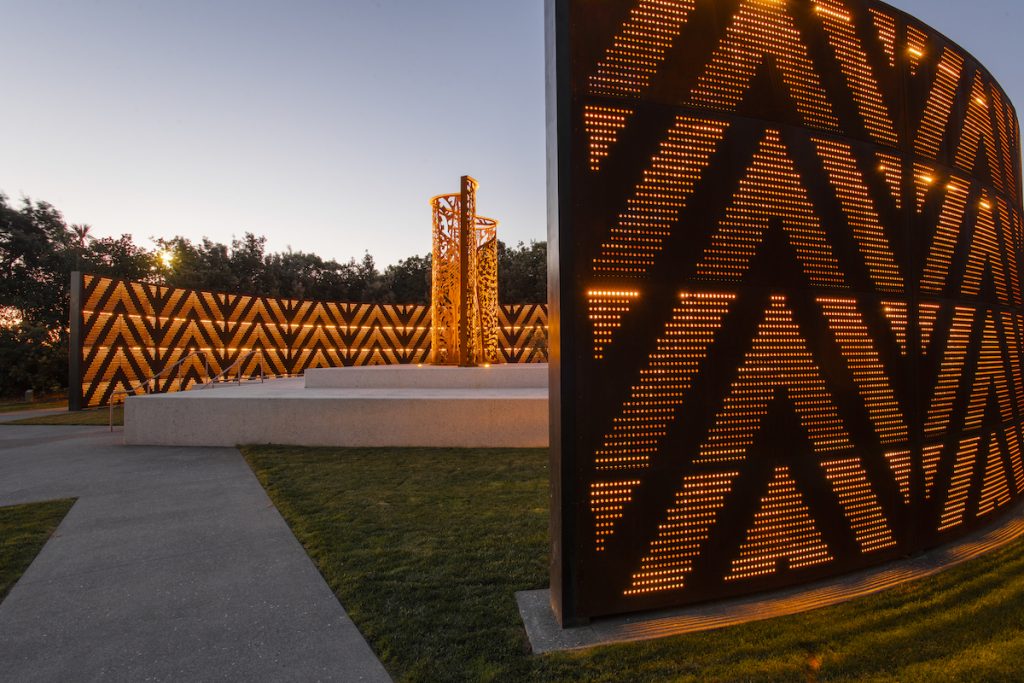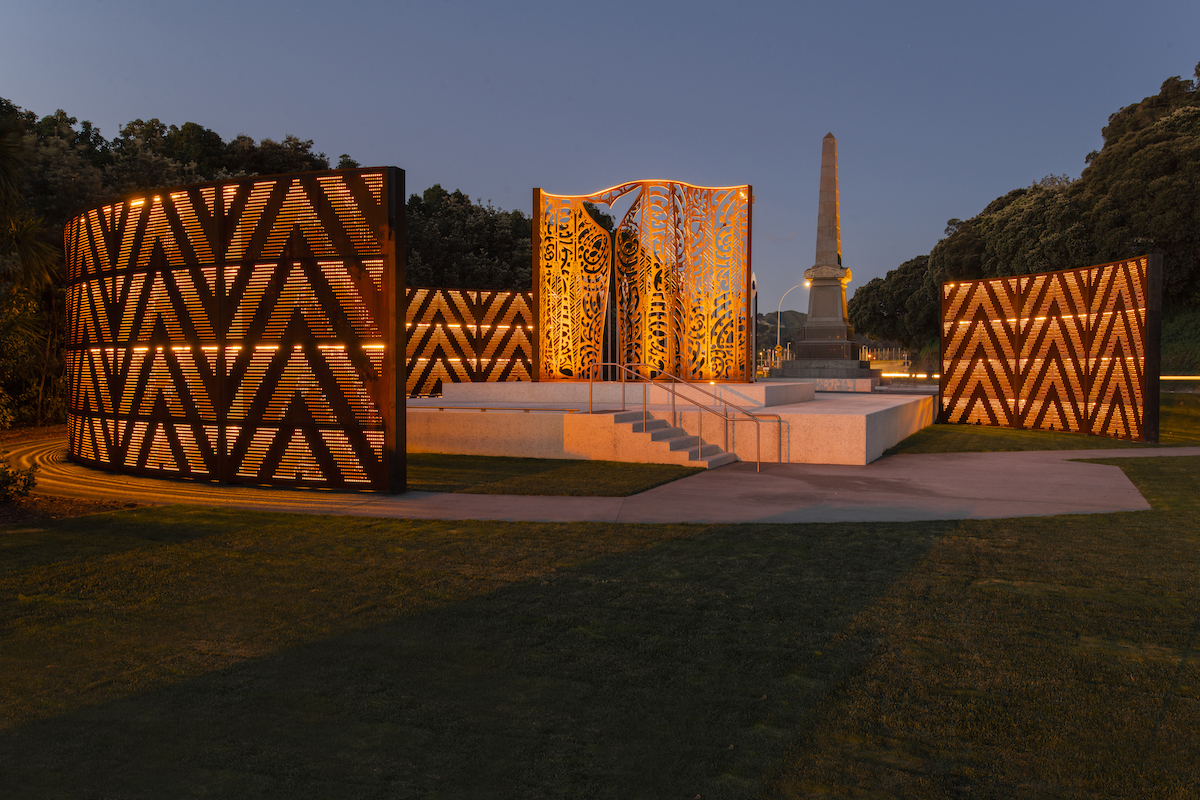Puhi Kai Iti/Cook’s Landing in Gisborne is a partnership between Ngati Oneone, The Department of Conservation and Gisborne District Council. Architects Boffa Miskell and CPS Civil Project Solutions were tasked with delivering this unique project and engaged MHL to help with the lighting solution.
The goal for this culturally significant project was to find ways to use lighting to enhance the unique architectural elements of Puhi Kai Iti, making them the centrepiece, and to help create a visually comfortable inviting space for people to visit at night.
Puhi Kai Iti is made up of two key elements; the Ikaroa Sculpture and the Tukutuku Panels around the sculpture.



For the Ikaroa Sculpture, very narrow beam ETC320-FS fittings were used to accentuate the curved wave-like form of the sculpture by creating contrast and drama with shadowing. In addition, a fixture was placed in the centre of the cutout of the whale tail to accentuate the top edge of the whale flute.
Designing the lighting solution for the Tukutuku Panels came with its own challenge. Showing how the Tukutuku panels would look in real life when illuminated from within by the AEON FLEX strip can sometimes be difficult to accurately visualise with lighting design software alone. Therefore, a to-scale model of the Tukutuku panel, including rust coloured paint to represent the Corten steel, was constructed to help provide a better understanding of how the Tukutuku panels would look in real life when illuminated.
Another challenge was created by the fact that site conditions necessitated that the inground uplighters for the cenotaph had to be located several metres out from the monument. However, the gimbal mounted WE-EF ETC overcame this constraint to good effect.
For the MHL team, it was a privilege to be involved in such a unique and historically significant project. We are extremely pleased that the result met and exceeded expectations with the lighting showcasing the form of the sculptures in a new perspective that perhaps can’t be noticed during the day.
Products used:
WE-EF ETC320-FS EE BEAM (Ikarua sculpture)
WE-EF ETC340-GB M.BEAM inground uplights (cenotaph)
WE-EF ETC340-GB EE.BEAM (Te Maro sculpture)
UNIOS Aeon Flex side emitting flexible LED strip (Tukutuku panels)






